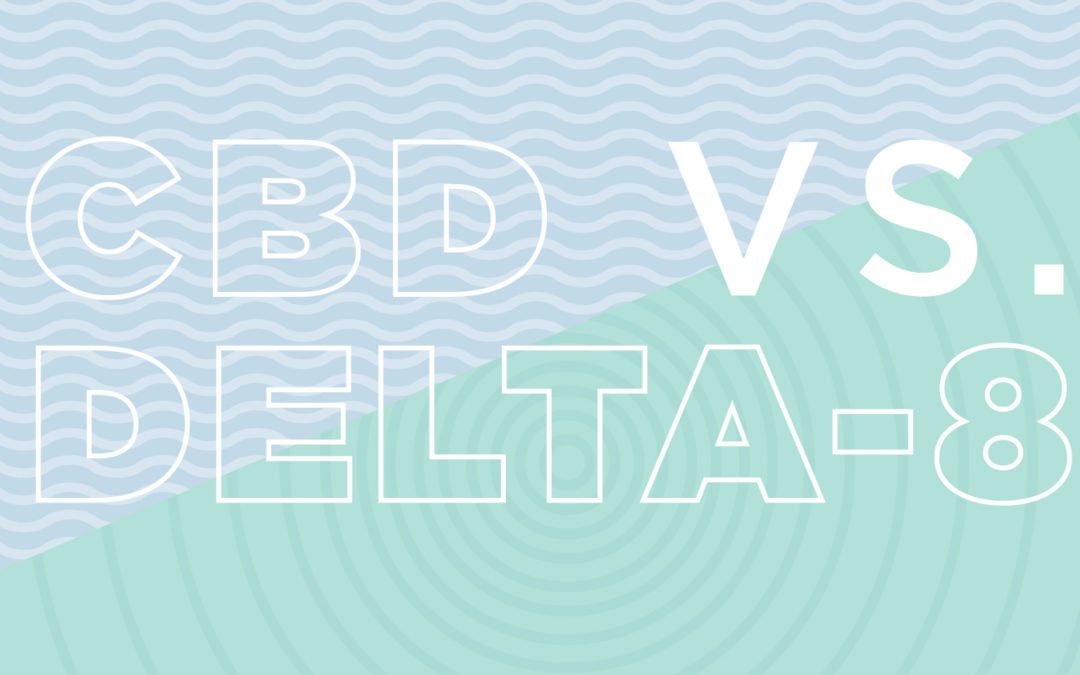We offer both delta-8 THC and CBD among our diverse range of cannabis products. The cannabinoids have gotten attention in the recent past. Still, the everyday person may not know about one or either of these cannabis compounds. You may wonder: how is delta-8 different from CBD?
What do the two have in common? And, most of all, which is the best cannabis product for you? We want to answer these questions and more in our comprehensive guide.
Thanks to the 2018 Farm Bill, some cannabis is legal for production and consumption. The bill defines legal hemp as cannabis that contains 0.3% delta-9 THC or less. That makes both CBD and delta-8 THC legal on a federal level.
What else do the delta-8 and CBD have in common? How is delta-8 different from CBD? Let’s dive in for the answers.
What is Delta-8 THC?
There are over 100 cannabinoids in cannabis plants. You may have heard of some of them, like CBG, CBN, or THC, to name a few. Delta-8 isn’t the most popular cannabinoid, but it is the fourth most prominent. The minor cannabinoid occurs in a small percentage of some cannabis strains. That might help explain why the USDA didn’t mention delta-8 when clarifying the 2018 Farm Bill.
Delta-8 THC, according to the research available thus far, seems to have a load of benefits.
It’s mildly psychoactive but not as intensely as delta-9 THC. That means it may not cause the negative symptoms that some people experience.
Some people don’t smoke because the potency of delta-9 leaves them paranoid and anxious instead of giving them the chill high they were expecting.
With delta-8, the high is much more invigorating. You’re more likely to feel a mellow chill wash over you without feeling like you’re locked in your head or on the couch.
Overall, delta-8 has a lot to offer as a powerful cannabinoid. In fact, beyond just a cool high, it appears to help with anxiety and certain types of pain. It may stimulate your appetite, reduce or eliminate nausea, and even provide some neuroprotective properties.
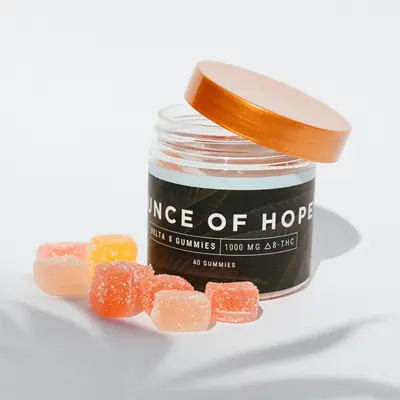
Vegan Delta 8 Gummies
$10.00 – $90.00
Select options
This product has multiple variants. The options may be chosen on the product page
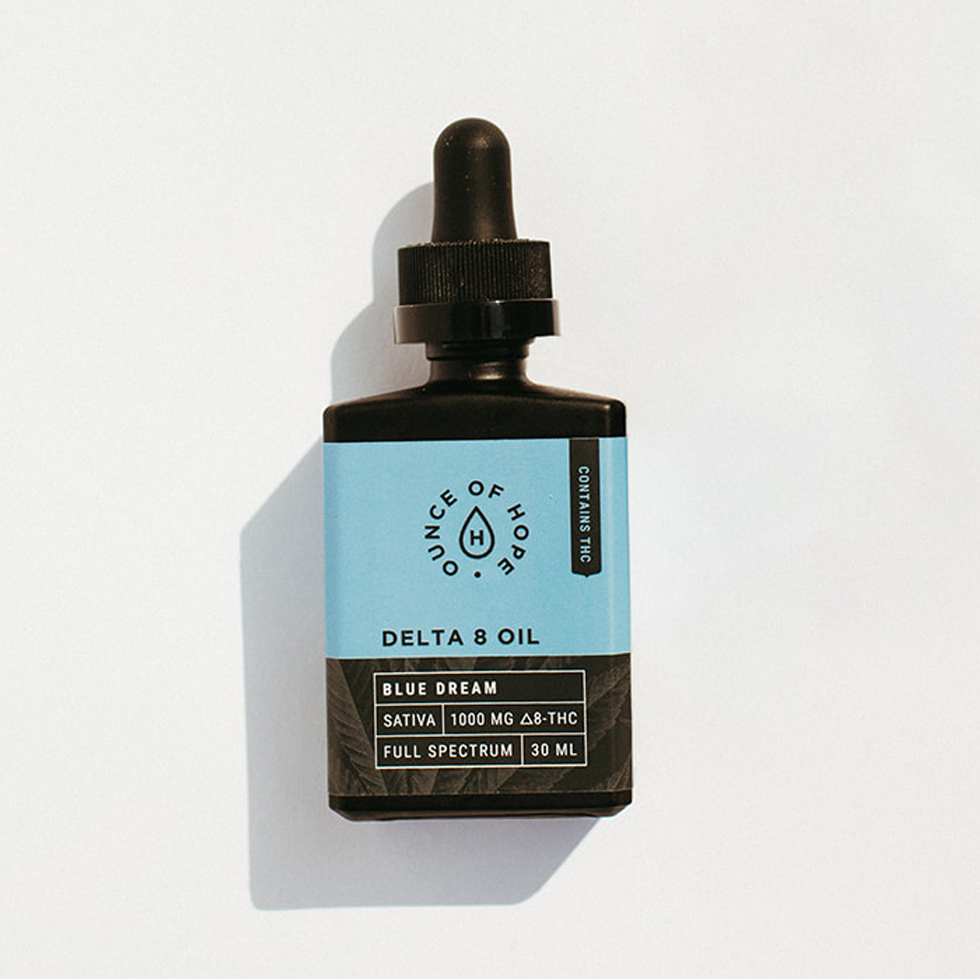
1000mg Delta 8 Blue Dream Oil
$12.00 – $75.00
Select options
This product has multiple variants. The options may be chosen on the product page
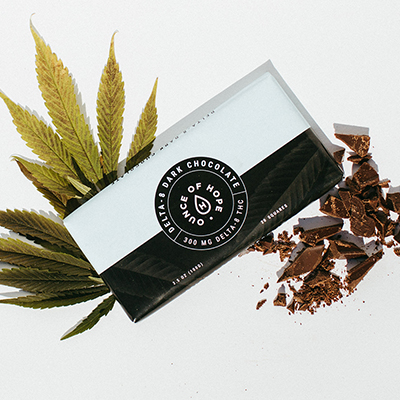
300MG Delta 8 Dark Chocolate
$5.00 – $29.00
Select options
This product has multiple variants. The options may be chosen on the product page
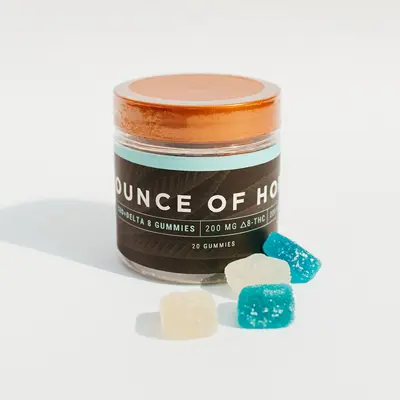
20mg CBD+Delta 8 Gummies
$10.00 – $90.00
Select options
This product has multiple variants. The options may be chosen on the product page
How Does Delta-8 Work?
As we explore how delta-8 and CBD differ, it’s good to examine how the two cannabinoids work.
Delta-8 THC is very similar to its close cousin, delta-9. That makes the entire thing much easier to grasp. Much like delta-9, delta-8 binds to CB1 receptors in our endocannabinoid system. One of the major differences is that delta-8 has a weaker bond with the receptors.
The lighter connection to our receptors means delta-8’s high is more gentle and manageable. People who use delta-8 often choose it specifically so they don’t get as high.
The more mellow high makes it a boon for people who like to enjoy a lighter buzz and still reap some of the potential benefits THC offers.
What is CBD?
Cannabidiol, or CBD, is the cannabinoid most abundant in certain hemp strains. Non-psychoactive, it doesn’t stimulate any sort of high as the THC variety does.
However, it does exert a variety of properties that many consider high-profile benefits. These include anti-inflammatory, chemopreventive, and anti-anxiety effects. In short, CBD has many perks for different people.
Since CBD became legal through hemp, it’s gained quite a following throughout the US. The numbers of use are up from the 2019 Gallup Poll, which showed 1 in 7 Americans use CBD. A newer survey from the Journal of the American Medical Association (JAMA) shows that 1 in 5 adults use CBD.
The same JAMA survey shows a prevalence in delta-8 and even CBG use. Numbers are rising, and cannabinoids are finally getting some much-deserved limelight.

Vitality Mushroom Gummies
$10.00 – $85.00
Select options
This product has multiple variants. The options may be chosen on the product page
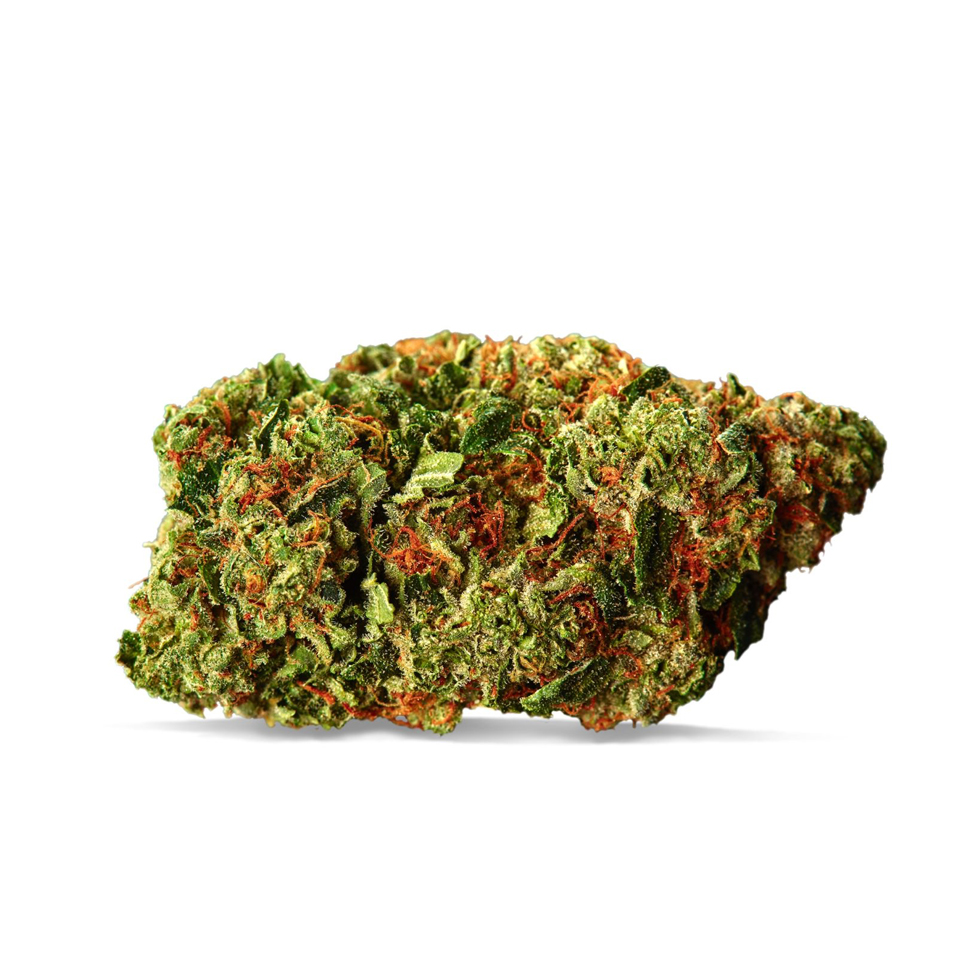
CBD Aquaponic Hawaiian Haze
$5.00 – $99.99
Select options
This product has multiple variants. The options may be chosen on the product page
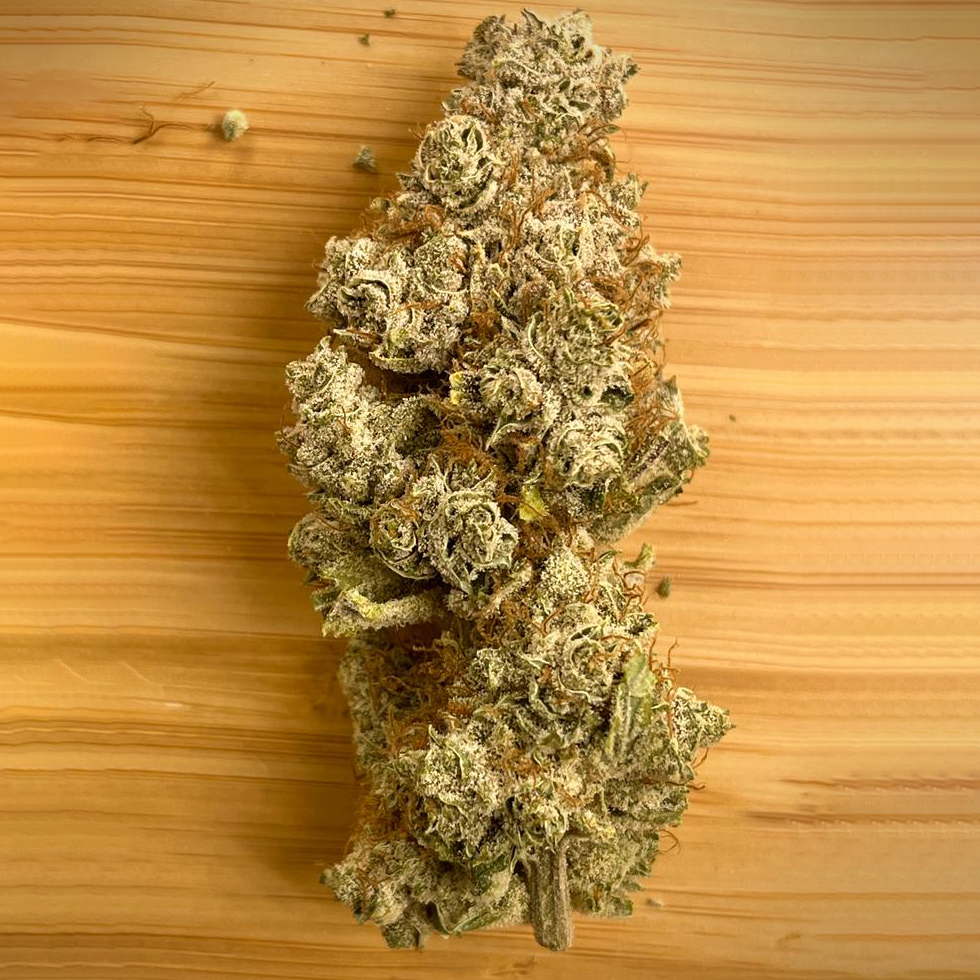
Aquaponic White CBG
$5.00 – $99.99
Select options
This product has multiple variants. The options may be chosen on the product page
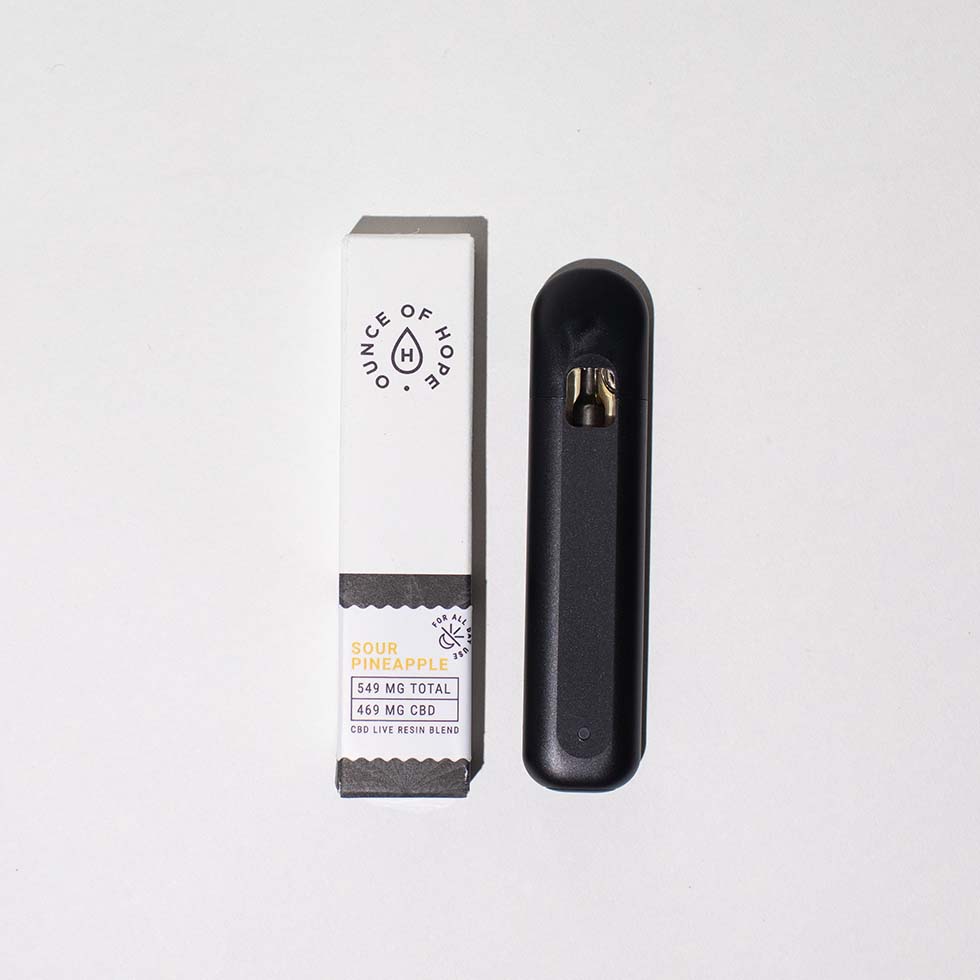
549mg CBD Live Resin Vape
$35.00
Select options
This product has multiple variants. The options may be chosen on the product page
How Does CBD Work?
Like its cousin THC, CBD may interact with our endocannabinoid receptors.
More specifically, the CBD compound may interact with our central nervous system. As a result, CBD may have a natural calming effect.
Potential Benefits
CBD research continues to see a major boom as more companies explore its medical and therapeutic potential. It carries heavy promise thanks to its medical applications. The mysteries surrounding CBD continue to be unveiled as time goes on. And while research is still ongoing, some benefits have become the primary focus. These include:
- Pain Relief
- PTSD management
- Nausea
- Heart health
- Sleep improvement
While not comprehensive, this hopefully offers a glimpse into what CBD may provide. The list is also likely to grow as research continues.
How is Delta-8 Different from CBD?
Because they connect to the same receptors in the brain, there’s a lot in common with the two cannabinoids. They provide many similar benefits to one’s health, but they also have many big differences — the main one being one gets you high, and the other doesn’t.
Delta-8 THC is psychoactive, so it can stimulate certain “stoned” effects for you. CBD, on the other hand, is meant to stimulate relaxation differently – more in the same way that melatonin can help you get to sleep.
CBD doesn’t cause a high and requires a much more consistent, robust routine before any of its benefits are felt. You can get high from delta-8 THC the first time and feel many of its benefits along the way. With CBD, it can take four weeks or more to incorporate it into your daily routine before anything noticeable is felt.
Which is Stronger: Delta-8 or CBD?
Now that you know how delta-8 and CBD differ, it’s good to address some other misconceptions. Some may wonder how they can get the best “bang for their buck” between these two cannabinoids. The answer isn’t so simple, though.
The THC family and CBD affect the mind and body in entirely separate ways. THC is linked to psychoactive effects, and many associate CBD with pain management, relaxation, and other relief.
So, which is stronger? It depends on what you need it for. Or, you could combine the two for a more powerful experience altogether. CBD and delta-8 THC do often work together for a synergistic effect. Called the entourage effect, you may discover you prefer a combination rather than one over the other.
When to Use CBD
CBD can be looked at more as a medical support compound instead of anything else. The uses for CBD revolve around its beneficial applications and tend not to be used recreationally since it lacks any psychedelic impact.
That being said, people who regularly use CBD may find different times of the day for ideal use.
- Some people may use CBD as a wake-inducing agent and find benefits in early morning use. Some of the early morning benefits include reduced anxiety, better alertness, and less early morning brain fog.
- Daytime users have found that CBD can help alleviate their chronic issues, such as migraines and seizures. This, of course, varies on a case-by-case basis, but anecdotal testimonies and FDA research have proven very promising.
- Evening and nighttime applications also have their benefits. Some users have claimed that CBD has drastically reduced their insomnia symptoms and increased their ability to enjoy a good night’s sleep. CBD in the evening is linked to reducing stress, which may help your nighttime routine and sleep patterns as well.

Vitality Mushroom Gummies
$10.00 – $85.00
Select options
This product has multiple variants. The options may be chosen on the product page

CBD Aquaponic Hawaiian Haze
$5.00 – $99.99
Select options
This product has multiple variants. The options may be chosen on the product page

Aquaponic White CBG
$5.00 – $99.99
Select options
This product has multiple variants. The options may be chosen on the product page

549mg CBD Live Resin Vape
$35.00
Select options
This product has multiple variants. The options may be chosen on the product page
When to Use Delta-8 THC
Delta-8 THC is on the other end of the spectrum when it comes to purpose and use. Delta-8 THC offers a psychedelic effect, making it a viable alternative to traditional delta-9 THC. The impact is considered much less intense, so it isn’t a one-to-one trade-off.
Delta-8 has found a following with people who want to wean down off of delta-9 THC or those who find traditional THC overbearing and strong.
- Some common uses for delta-8 include alleviating stress, better focus, and better sleep.
- Outside of those benefits, delta-8 THC still offers a high like its delta-9 cousin but lighter. The less intense high makes it appealing for those who still want to enjoy recreational cannabis but don’t handle the intensity of traditional delta-9 THC well.
Delta-8 is often considered “weed-lite” thanks to its milder impact, but it’s important to remember that delta-8 THC is still THC and will, in fact, cause a failed drug test.

Vegan Delta 8 Gummies
$10.00 – $90.00
Select options
This product has multiple variants. The options may be chosen on the product page

1000mg Delta 8 Blue Dream Oil
$12.00 – $75.00
Select options
This product has multiple variants. The options may be chosen on the product page

300MG Delta 8 Dark Chocolate
$5.00 – $29.00
Select options
This product has multiple variants. The options may be chosen on the product page

20mg CBD+Delta 8 Gummies
$10.00 – $90.00
Select options
This product has multiple variants. The options may be chosen on the product page
Final Thoughts: How is Delta-8 Different from CBD?
In conclusion, delta-8 offers a milder psychoactive experience to delta-9 THC. Meanwhile, CBD isn’t psychoactive at all. Instead, the cannabinoid may offer a sense of calmness and relaxation.
Really, it depends on your preferences. Try CBD, delta-8, or try a combination of the two, along with the other cannabinoids in our line, to see which truly fits your preferences the best. Our best combination product for delta-8 and CBD is our CBD+ delta-8 gummies.
Everyone has their own reasons, so it may take time and some experimenting before you find what’s right for you. Try our CBD or delta-8 THC products to see which one is your favorite.
Both delta-8 and CBD may offer symptom relief from anxiety, pain, and more. While the two have their individual benefits, the power of the two compounds together makes them that much stronger. Shop today to discover which you prefer: CBD, delta-8, or a mix of the two.

20mg CBD+Delta 8 Gummies
$10.00 – $90.00
Select options
This product has multiple variants. The options may be chosen on the product page
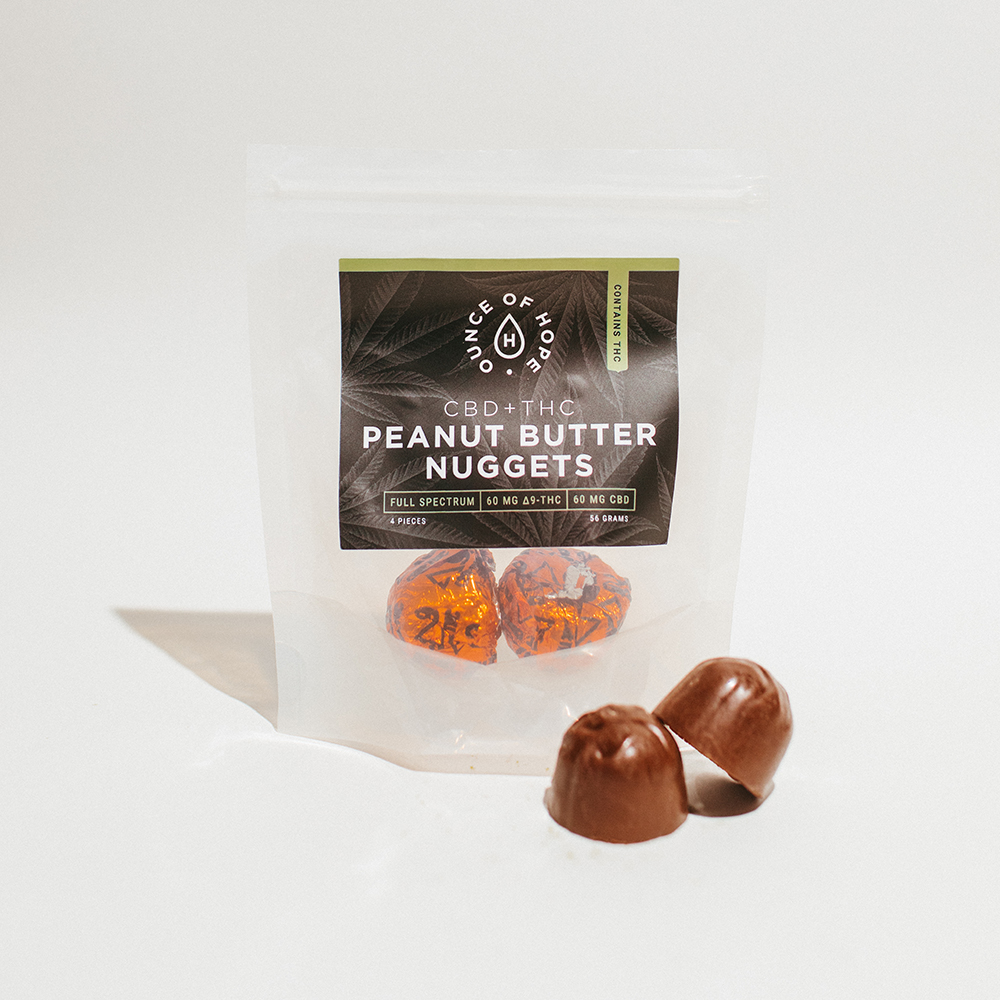
30mg Delta 9 Peanut Butter Nuggets
Read more

Vitality Mushroom Gummies
$10.00 – $85.00
Select options
This product has multiple variants. The options may be chosen on the product page
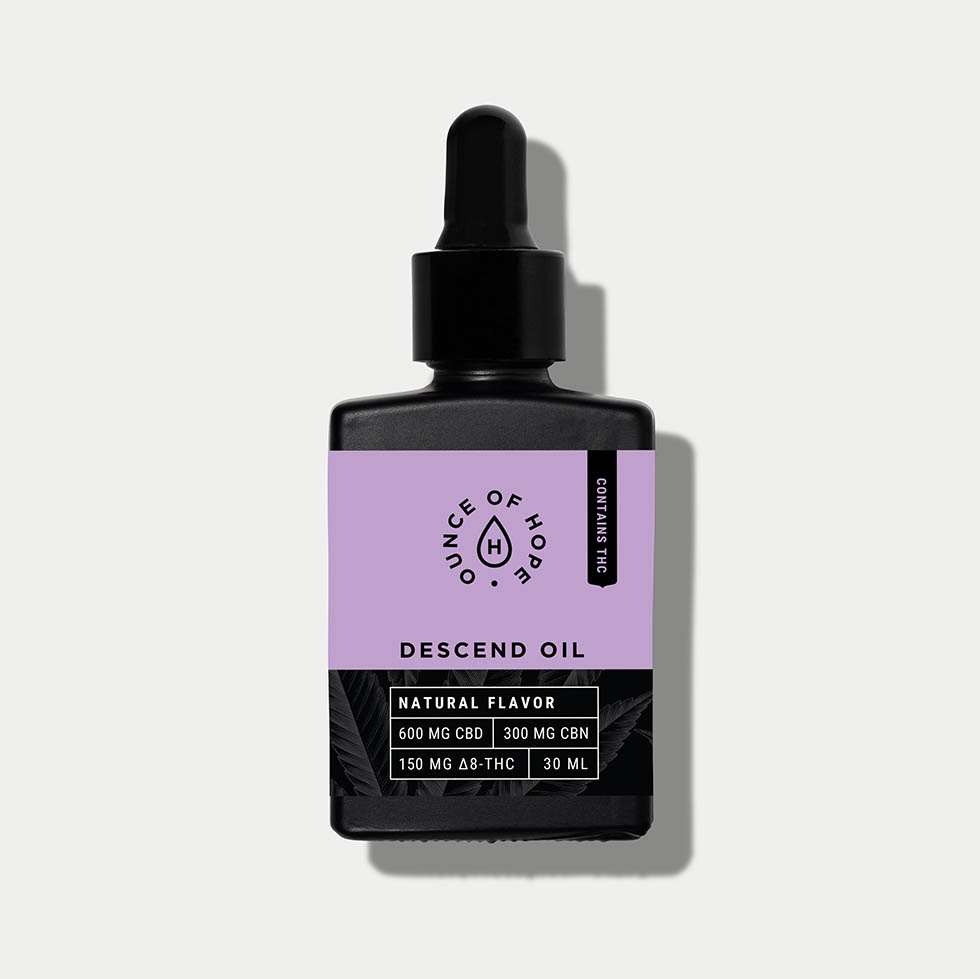
1050mg Descend CBN Oil
$10.00 – $85.00
Select options
This product has multiple variants. The options may be chosen on the product page
